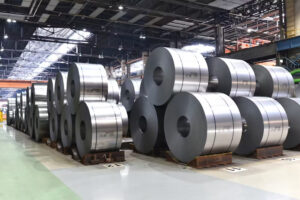
If you work with metal — or rely on it to build things, make parts, or manufacture goods — you’ve probably felt the shift. The metal industry is going through a big change. New tariffs on imported metals just kicked in, and they’re already starting to affect prices, supplies, and everyday operations.
Let’s talk about what’s going on in plain English, why it matters, and how it could affect businesses and people like you.
So, What’s a Tariff?
Think of a tariff like a tax that’s added to goods coming from other countries. In this case, it’s being added to metals like steel and aluminum. The idea is to make imported metal more expensive so that local metal producers can compete better and sell more.
Sounds simple, right? But the reality is a bit messier.
What’s Changing?
Now that tariffs are in place, companies that buy metal from overseas are paying more — sometimes a lot more — for the same products. These aren’t just huge corporations. Small manufacturers, construction businesses, toolmakers, and even appliance companies are feeling the pinch.
Prices have gone up quickly. And when businesses pay more, they usually pass those costs down the line — meaning things we all buy could start to cost more, too.
For example:
- A company making home appliances may raise prices.
- A construction crew might charge more because building materials cost more.
- A local metal shop may delay orders because their raw material is stuck or too expensive.
It adds up fast.
Supply Chain Stress
There’s more to the story than just prices. The actual flow of metal has been disrupted, too. Some international suppliers are shipping less or stopping altogether. Others are taking longer because of the new rules, paperwork, or increased shipping fees.
So even if a company is willing to pay the higher price, the metal might not arrive on time — or at all.
Imagine needing steel to finish a project and finding out your order is delayed by weeks. That’s happening to a lot of companies right now.
Some Are Winning — For Now
Interestingly, not everyone is losing out. Local metal producers — the ones the tariffs were meant to help — are getting more orders and slightly better prices. For them, this is a bit of a boom.
But for companies that need to buy and use metal, it’s a struggle. Higher costs, slower deliveries, and frustrated customers are becoming the norm.
Many businesses are asking: Is this really helping the economy in the long run?
It’s a Global Ripple
This isn’t just a local issue. Some countries hit by the tariffs are starting to respond with their own tariffs. That creates even more trade tension. It’s like a domino effect, where one change leads to another, and global trade gets harder for everyone.
If your business works with international suppliers, this could mean you’ll need to find new partners — or pay even more.
For example, a business that used to buy aluminum from Asia might now look to Canada or local sources. But switching isn’t always easy or quick.
Environmental Concerns
One quiet side effect is how these tariffs affect sustainability. Some companies were buying recycled or lower-emission metal from overseas to help the environment. But if those sources now cost too much or get blocked, they may have to go back to less eco-friendly options.
That means good intentions get pushed aside when budgets get tight.
What Can Businesses Do?
So how are companies dealing with all this? The smart ones are trying to stay flexible and think ahead. Here’s what many are doing:
- Looking for new suppliers — ideally local or regional ones.
- Ordering materials earlier or in larger amounts to avoid delays.
- Talking openly with customers about possible price increases.
- Making operations leaner and more efficient to save where they can.
- Watching trade news closely, so they’re not caught off guard.
It’s all about staying ready and being able to adjust.
Final Thoughts
The metal industry is facing a real test right now. New tariffs have added stress to pricing, shipping, and decision-making. Some businesses will benefit. Many others will face tough choices.
Still, change doesn’t always have to be bad. Some companies will come out stronger, more creative, and more prepared for the future.
If you’re part of the metal world — whether as a producer, buyer, or user — this is a time to stay sharp, stay flexible, and plan ahead.
The road might be bumpy for a while, but industries like this one have been through tough times before — and come out even better.













